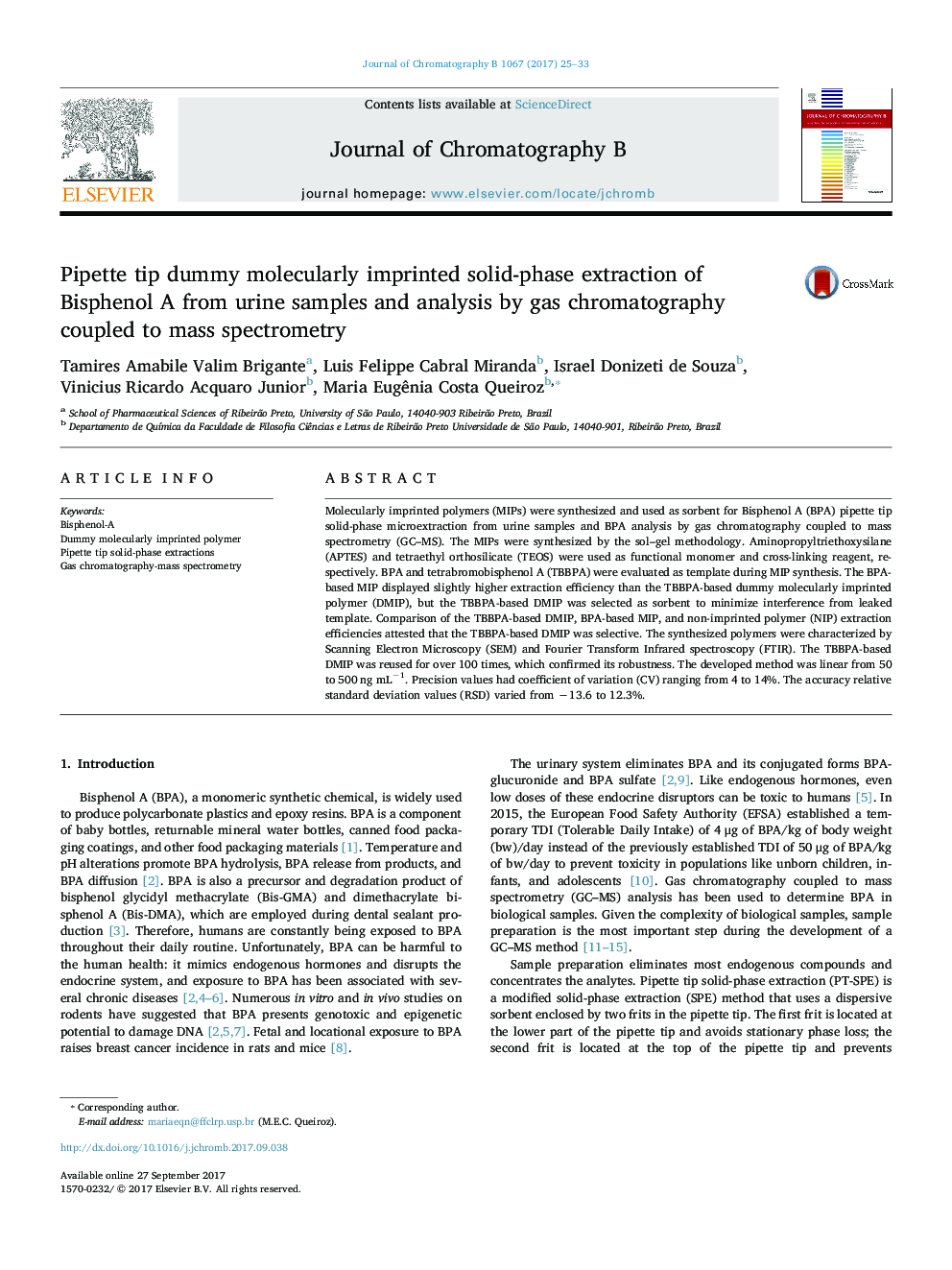| Article ID | Journal | Published Year | Pages | File Type |
|---|---|---|---|---|
| 5136132 | Journal of Chromatography B | 2017 | 9 Pages |
â¢Pipette tip solid-phase extraction was used to analyze Bisphenol A in urine samples by GC-MS.â¢Molecularly imprinted polymers were synthesized via the sol-gel methodology.â¢A dummy molecularly imprinted polymer was used as sorbent for pipette tip extraction.â¢The sorbent was reused over 100 times without extraction efficiency loss.
Molecularly imprinted polymers (MIPs) were synthesized and used as sorbent for Bisphenol A (BPA) pipette tip solid-phase microextraction from urine samples and BPA analysis by gas chromatography coupled to mass spectrometry (GC-MS). The MIPs were synthesized by the sol-gel methodology. Aminopropyltriethoxysilane (APTES) and tetraethyl orthosilicate (TEOS) were used as functional monomer and cross-linking reagent, respectively. BPA and tetrabromobisphenol A (TBBPA) were evaluated as template during MIP synthesis. The BPA-based MIP displayed slightly higher extraction efficiency than the TBBPA-based dummy molecularly imprinted polymer (DMIP), but the TBBPA-based DMIP was selected as sorbent to minimize interference from leaked template. Comparison of the TBBPA-based DMIP, BPA-based MIP, and non-imprinted polymer (NIP) extraction efficiencies attested that the TBBPA-based DMIP was selective. The synthesized polymers were characterized by Scanning Electron Microscopy (SEM) and Fourier Transform Infrared spectroscopy (FTIR). The TBBPA-based DMIP was reused for over 100 times, which confirmed its robustness. The developed method was linear from 50 to 500 ng mLâ1. Precision values had coefficient of variation (CV) ranging from 4 to 14%. The accuracy relative standard deviation values (RSD) varied from â13.6 to 12.3%.
